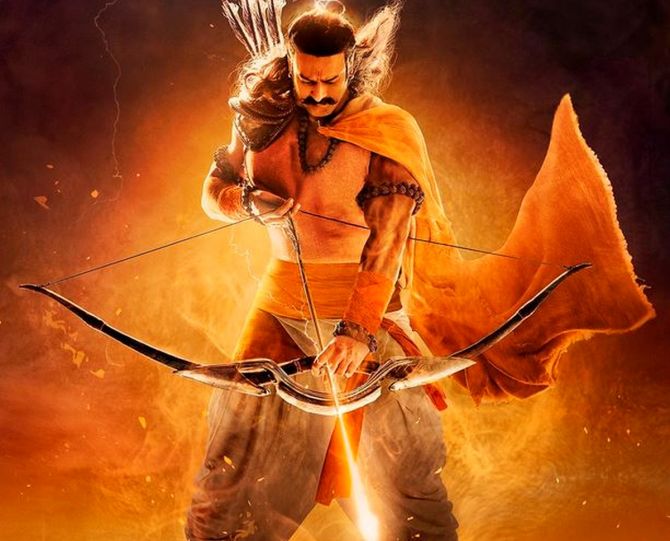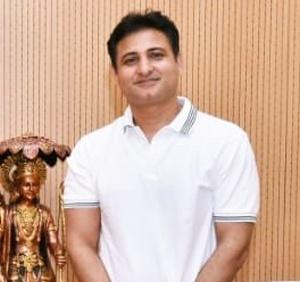'The formula now is even if there is no profit there should be break-even.'
'We green-light a film only if we can see break-even in it.'

The Rs 2,372 crore (Rs 23.72 billion/FY22 revenue) T-Series is India's largest music company and the biggest channel on YouTube globally.
At roughly Rs 700 crore (Rs 7 billion) in revenue from films, it is now being counted among the top film studios too with hits like Hindi Medium (2017), Kabir Singh (2019) and Tanhaji (2020) under its belt. Its latest release Adipurush released in theatres on June 16, 2023.
"Actors, technicians, everyone is realising that no production company can take a risk on theatrical beyond a point," Shiv Chanana, senior vice-president, films, T-Series, tells Vanita Kohli-Khandekar.
T-Series has been making films since founder Gulshan Kumar's times. What has changed?
From 2016 onwards we have become more serious about making films.
We made about seven films in that year.
We wanted to produce a lot of films because then the backbone of the music business is with us. (Film music forms roughly 70 per cent of all music sales in India).
We changed over to the studio model because we realised that we can't make all the films ourselves.
Therefore, we started associations with other production houses and producers.
From six-seven films in 2016 we went to 17-18 in 2019. Then the pandemic happened.
Now we release 14-15 films a year.
When you acquire a film or co-produce what is the deal?
We have 100 per cent rights for exploitation of the IP (intellectual property) across platforms -- satellite, digital, theatrical.
(For) some films we get the IP, too, but usually the exploitation is always with us because we fund the film fully including cost of production and publicity and advertising till the time of release.
Depending on the deal with the production company there could be a profit share of 70:30 or 50:50.
In 2022 we released 15 films and in 2023 we will end up releasing 10-12 films.
Some are direct-to-OTT and others theatrically (like Ludo in 2020).
The big ones this year are Adipurush in June and Animal in August with Ranbir Kapoor.

IMAGE: Shiv Chanana, Senior Vice President Films, T-Series
Photograph: Kind courtesy Shiv Chanana/Linkedin
How do you balance the portfolio with theatrical plus direct-to-OTT films?
In theatricals, if something works it can go to any range -- like Kabir Singh or Tanhaji. But post-Covid, people are not going to the theatre for every film.
That is why there is some correction happening in film-making, too.
The heavy budgeted films are getting corrected.
Across the board, budgets and prices are being cut by 20-25 per cent.
Actors, technicians, everyone is realising that no production company can take a risk on theatrical beyond a point.
The formula now is even if there is no profit there should be break-even.
If one film works, it will cover the cost of two-three films.
There are lots of stories -- we hear two-three scripts every week. But not everyone can be green-lit.
We green-light a film only if we can see break-even in it.
What does the film business bring to T-Series -- strategically and in revenue terms? Is it profitable?
Music still dominates our top line. But film is becoming significant... it brings in roughly a third of the top line now. But its proportion varies, unlike music which remains steady.
The business was profitable before the pandemic and continues to be so though the profit ratio has gone down.
What are the pros and cons of being a music company and a production studio?
There are no disadvantages.
The Indian music business is driven by music, so that is a huge advantage.
If the music works, it always helps the film.
When we make a film we are fully involved with the music. We work on which song will work in which situation and so on.
We discuss it with the director, come up with 5-10 options for that situation, and put the correct song in that situation.
The song should suit the film and also be able to stand on its own.
We may or may not do this with films we acquire... that depends on the producer.
Feature Presentation: Rajesh Alva/Rediff.com












 © 2025
© 2025